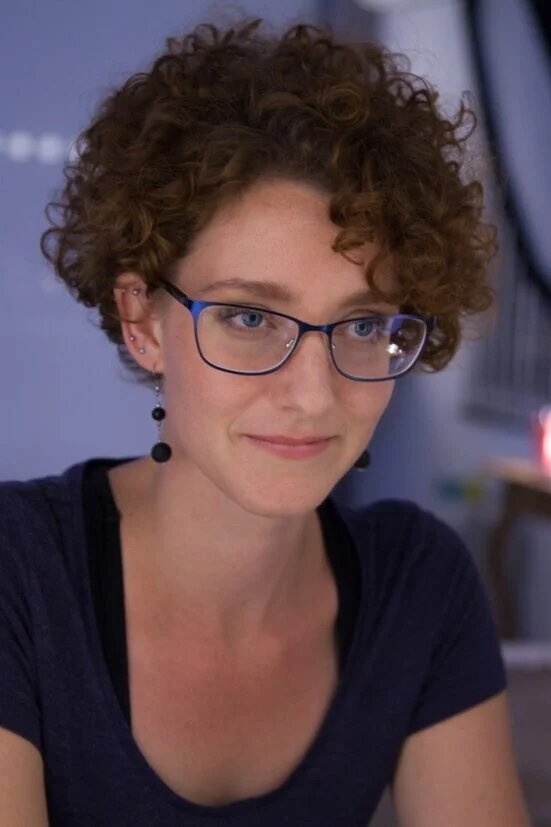“The ability to play is critical not only to being happy, but also to sustaining social relationships and being a creative, innovative person (1).”
These words from Stuart Brown explain perfectly why we launched PlayTime!
PlayTime are short 45-minute sessions conducted on Zoom. We use techniques and activities from the world of improvised comedy (improv) to get participants to move, speak, dance, sing, draw… The objective is for each participant to express themselves, to be in the moment, and to connect with others. Thanks to Zoom, we’re able to switch between activities all together and in small groups in breakout rooms.
In these post pandemic time where remote-working is still widespread, in a world in which screens reduce social interactions to a bare minimum, social isolation is a lingering issue. Riding a primitive drive and a strong emotion, play and joy, PlayTime offers the possibility to truly connect with others, in spite of being distant from one another.
Researchers are creative people. Period. We hope that one day every researcher, especially hard-scientists, will recognise that. Creativity is an essential skill for researchers and it can be trained if given the proper environment (2). We humbly hope to provide a platform for every participant to practice and train their creativity.
Intended audience
Our primary targets are PhD students and post-docs. We are providing a service for the academic community, because academics are fun, talented, creative and smart individuals. Gathering a set of people with a common background and facing the same struggles is the perfect way to ease the connection between participants.
Monthly at your university?
If you are interested in bringing PlayTime to your institution or organisation, get in touch!
Testimonials
“Fun and therapeutic!”
“Simple and easy activities that touch deep chords”
“I’m so glad I attended the session today!”
“It was so fun it made me forget that I was alone in my house”
“I loved everything of it!”
“Thank you for brightening our day!”
Who we are
Dr. Samuel Lagier and Viki Lazar have been improvising together since 2013 as part of the Renegade Saints. They have designed and taught classes, workshops, festivals, and improv camps together ... and now PlayTime!
Viki Lazar is a performer, teacher, and facilitator and has been passionate about improv and theater for over 20 years.
Born and raised in New Jersey, in a Hungarian family, bookworm Viki first discovered improv as an 8th grader. At Rutgers University, next to a rigorous academic schedule, Viki was heavily involved with the campus comedic theater group.
Viki moved to Geneva in 2010 to work at a philanthropic foundation. She continued pursuing improv and theater as hobbies until 2013, when she co-founded the Renegade Saints, Geneva's premier English-speaking improv troupe. Next to sold-out monthly performances, Viki and her colleagues offer classes, trainings, and workshops. Keen to build community, Viki has established improv festivals and camps, and has collaborated with French-speaking groups. In 2015 Viki discovered the power of improv beyond the stage and now brings her improv toolkit to the corporate world to help teams enhance their creativity, communication, and collaboration.
Dr Samuel Lagier is a scientist, improvisor and public speaking trainer and coach. He specializes in communication, collaboration and creativity. He runs SamSpeaksScience, dedicated to help researchers talk about their work and joined the TEDxLausanne team for 6 years as a curator, coach and host. He brings storytelling to experts for them to effectively share their rational, factual and thorough vision of the world to society. Sam holds a PhD in neuroscience and his 15 years of scientific research made him an expert in the exploration of complex systems, processes and ideas.
With over 13 years of experience with improvised comedy, he gives a serious playful twist to his experiential trainings. Learning is most effective through action and his situation-based activities provide the ideal platform for participants to understand the necessary ingredients for efficient collaboration and co-creation.
Hedwig Ens is a firm believer of making science open and accessible for all through the power of stories. She briefly worked as an evolutionary ecologist before she realized she’d rather spread existing science stories than help discovering new ones. This led her into an exploration of the different media she can utilize for it: classic storytelling, writing, and improvisation theater. Hedwig currently works at Frontiers for Young Minds: a non-profit open access journal with science for kids, edited by kids.
Some references
(1) Play. How it shapes the brain, opens the imagination, and invigorates the soul. - Stuart Brown
(2) Scheffer, M., Bascompte, J., Bjordam, T. K., Carpenter, S. R., Clarke, L. B., Folke, C., et al. (2015). Dual thinking for scientists. Ecology and Society, 20(2), art3–4. (www)
And also:
The poetry of music and of science. - Tom McLeish
Ross, M. D., Owren, M. J., & Zimmermann, E. (2010). The evolution of laughter in great apes and humans. Communicative & integrative biology, 3(2), 191–194. (www)
Speechless Inc. (2019). Play has serious benefits for adults. Medium (www)
Dance A. (2018). Why laughter in the lab can help your science. Nature, 555(7698), 689–691. (www)
De Gruyter (2020). Locked down, burned out. Publishing in a pandemic. (pdf)
Gewin V. (2021). Pandemic burnout is rampant in academia. Nature, 591(7850), 489–491. (www)
Lyall S. (2021). We have all hit a wall. New York Times (www)



